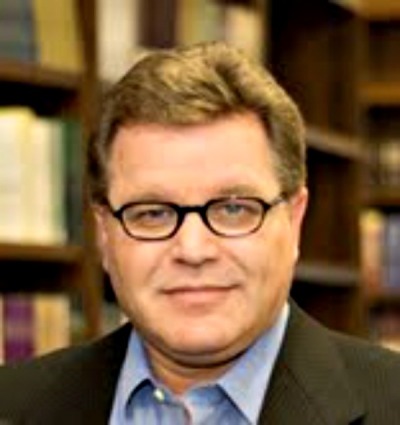Some Thoughts on Charlie Hebdo, Satire, and Nihilism

"It is the test of good religion," G. K. Chesterton wrote, "whether you can joke about it." If the reactions of religion's proponents is any judge, Judaism and Christianity fair pretty well. Islam—at least a large segment of Islam—doesn't think its very funny.
Of course no practicing Jew, Christian, or Muslim considers the cartoons published by Charlie Hebdo as funny. At best their cartoons are sophomoric, at worst pornographic. Anyone familiar with the paper knows its stock-in-trade is poking a stick in religion's eye, hoping to rid French society of God. The way they've chosen to do this is through what they purport to be satire—though it's hardly Jonathan Swift.
Webster defines satire as "a literary work holding up human vices and follies to ridicule or scorn." Charlie Hebdo has mastered the art of ridicule and scorn. But their judgment that all religions, particularly the three great religions of Judaism, Christianity, and Islam, are merely "human vices and follies" is imbecilic. Some lunatic practices and practitioners of these religions no doubt are worthy of mockery and contempt, but to consider the totality of these religions as wicked or foolish is a gross misunderstanding of these faiths and a deliberate distortion of history.
If what Charlie Hebdo does is satire, it is a dehumanizing and cynical form of satire. Instead of using humor in the service of a better philosophy of life—to prod powerful institutions into promoting human flourishing—Charlie Hebdo destroys that which is good and noble and beautiful in life. And for what? The editor, Gérard Baird answers for religious freedom and radical secularism. In an interview on Meet the Press, Baird said, "every time we draw a cartoon of God, we defend the freedom of religion, we declare that God must not be a political or public figure. He must be a private figure."
There you have it. According to secularist doctrine religion is all well and good . . . if it is restricted to your head, your heart, and your home. How this is full freedom is anybody's guess, since it places religious freedom under house arrest. But Baird wasn't through. Charlie Hebdo "defends" freedom of religion by restricting religious freedom because, according to secularist faith, religion is dangerous and destructive if allowed to roam freely in public. "If faith, if religious arguments step into the political arena," Baird said, "it becomes a totalitarian argument. Secularism protects us against this. Secularism guarantees democracy and assures peace. Secularism allows all believers and all non-believers to live in peace, and that is what we defend."
Exactly how public religious arguments becomes totalitarian is unclear. What is crystal, however—and ironic—is that the peace Charlie Hebdo "protects" is at the point of a poisonous pen. And while that's better than at the point of a gun, it is still protection by coercion.
This might be merely academic if Charlie Hebdo's secularists version of "protection" of religious freedom and democracy was their own, but it's not. Since 1789 France has been slowly strangling itself on secularism's noose. France has, "murdered its Christian soul," Rod Dreher wrote in The American Conservative, "and called it progress. . . . France's spiritual malaise has not been imposed by anybody; it is an act of civilizational suicide."
Not everyone in France is convinced that killing Christianity—or any religion for that matter—is a good thing. In an interview with the Paris Review, novelist Michel Houellebecq, who is no true believer in any religion, said that "there is a real need for God" in society, that "society cannot survive without religion," and that "religion, of some kind, is necessary" for society to flourish.
No one in the West wants to live under Islamism—the philosophy of jihad and Sharia law. And where it is practiced, it nowhere supports human flourishing. But neither does a society that worships the Self, celebrates the death of God, and only values the conviction that freedom comes after "the last king [has been] strangled by the entrails of the last priest."
We may be "morally compelled to defend artists and journalist against those who would kill them for what they draw or say," Dreher concedes. "But we should be clear that we are defending one culture of death from another one."
In other words, Islamism espoused by the Paris terrorists, and radical secularism espoused by the editors and artists of Charlie Hebdo hold to a similar philosophy by different means: nihilism—if not believing in nothingness as a first principle, at least believing in nothing but Self as a first principle.
This is not to say that the staff of Charlie Hebdo deserved to be murdered. They didn't. No one does. Publishing puerile and pornographic depictions of the sacred ought not be a death sentence, not in civilized societies. But jihadists aren't civilized. They don't write letters to the editor, protest and picket, or sue; they pick up guns and kill you. And the publishers of Charlie Hebdo ought to have known that. They ought to have known that a sleeping lion poked with a sharp stick will snap at you, much less one awake and prowling around looking for someone to devour.




























